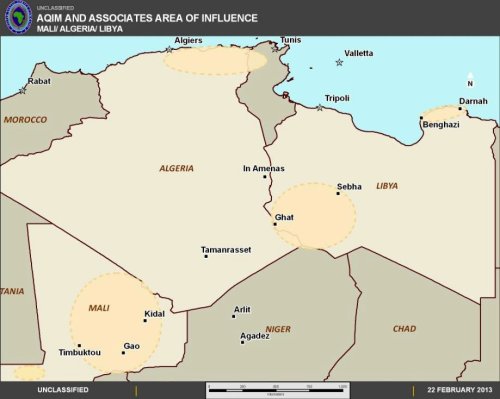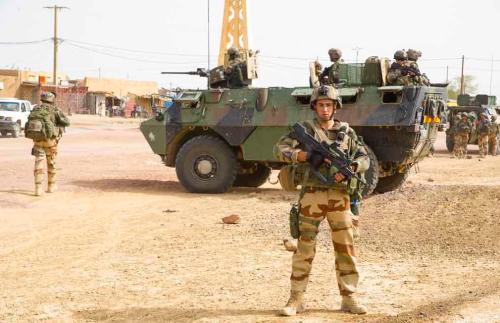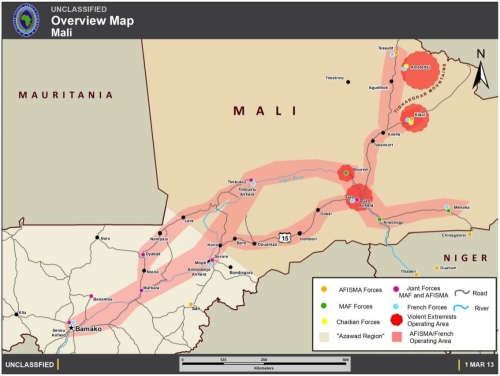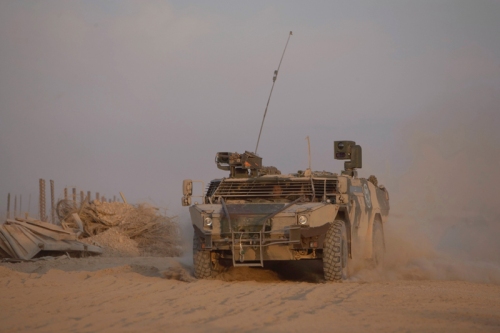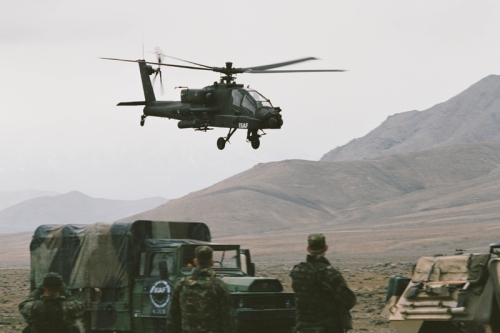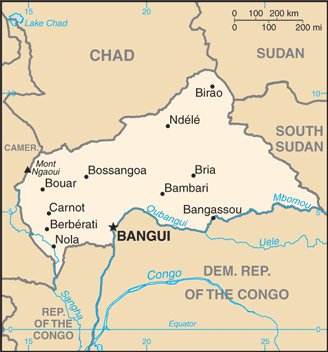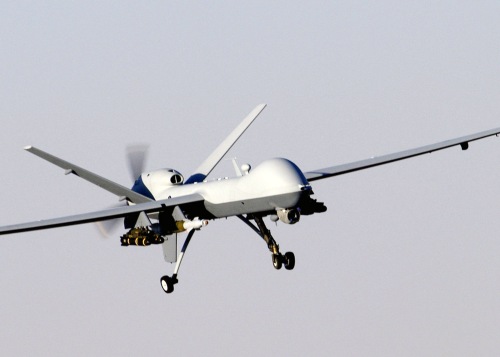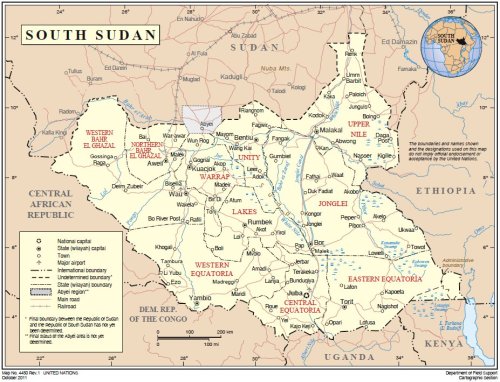Providing assistance to national security forces has long been one of the key elements of international assistance to developing nations broadly. The basic concept is that professional militaries and police forces can help instill a sense of confidence in governments, making them more stable as a result. The stability in turn promotes development in other areas. Essentially, more security equals more stability, when in turn equals more development.
Libya
This is definitely the goal behind the announcement last year to work on the development of a so-called “General Purpose Force” in Libya, where the central government has been largely ineffectual following the ouster and killing of the country’s former leader, Moammar Gadhafi, in 2011. The various militias in the country that helped overthrow the previous regime continue to hold significant power, especially at the local level, and act with relatively impunity. In addition, the lack of a functional national security apparatus has meant that much of the country has slipped into what might be described as an under-governed state. Concerns about terrorists using these regions to establish bases of operation have been voiced by Libya’s neighbors, as well as partners farther afield.
Last week, Libya’s interm Prime Minister Ali Zidan said that almost eight hundred personnel had either been sent to Europe recently or were on their way as part of the new General Purpose Force effort. Four hundred had already deployed to Turkey, and another four hundred were to go soon to Italy. Another four hundred are scheduled to eventually travel to Britain. In total, some eight thousand Libyan personnel are expected to go through twenty-four week training programs in Europe, with additional support provided by the United States. Zidan also said that there are currently some five thousand Libyan personnel around the world receiving training. Countries providing training for Libyan forces were said to include Algeria, Britain, Germany, Italy, Morocco, Persian Gulf states, Pakistan, Turkey, and the United States.
Gulf of Guinea
Also last week, Maritime professionals from West Africa, Europe, South America, and the United States met in Lagos, Nigeria to finalize the exercise plan for this year’s iteration of Obangame Express, a US maritime cooperation exercise held in the Gulf of Guinea. Angola, Belgium, Benin, Brazil, Cameroon, Cote d’Ivoire, Denmark, Equatorial Guinea, France, Gabon, Germany, Ghana, Italy, Netherlands, Nigeria, Portugal, Republic of Congo, Sao Tome & Principe, Spain, Togo, Turkey, and the United States will participate in Obangame Express 14, which is the fourth iteration of this exercise.
The exercise is designed to help improve regional capabilities to deter piracy and drug smuggling, as well as other maritime contingencies. As the threat of piracy has reduced in the Gulf of Aden off Somalia, attention to the problem has turned to the Gulf of Guinea, where it remains a serious issue. Last November, the were reports of a proposal to base US Marines afloat to help address the problem.
Somalia
Today, the German government announced its intention to contribute troops to the European Union training mission in Somalia. Germany had previously been involved in the training of Somali security forces when the EU mission was located in Uganda. When the EU moved the operation to Somalia’s capital Mogadishu last May, the Germans dropped out of the program, citing the increased risk of operating there. The EU had relocated the program as a gesture meant to affirm its support for the central government in Somalia.
Germany, which has some five thousand personnel taking part in nine international missions, has been urged recently by other European powers, notably France, to become more involved in such efforts. The bulk of Germany’s international commitment is its three thousand personnel in Afghanistan as part of NATO’s International Security Assistance Force. Last week, Germany also announced it would be increasing the size of its contribution to international peacekeeping efforts in Mali.
These announcements potentially signal a change in German foreign policy, which has since the end of the Second World War traditionally been inclined to avoid international commitments where there is a significant potential for violence and casualties. This month, Foreign Minister Frank-Walter Steinmeier, said earlier this month that “Germany, with all its diplomatic, military and aid capacity cannot stand by when its help is needed”. Steinmeier is a member of the country’s Social Democrat party, which entered into coalition with the conservatives led by Chancellor Angela Merkel. It has been suggested that this new coalition has been instrumental in these changes in German foreign policy.
